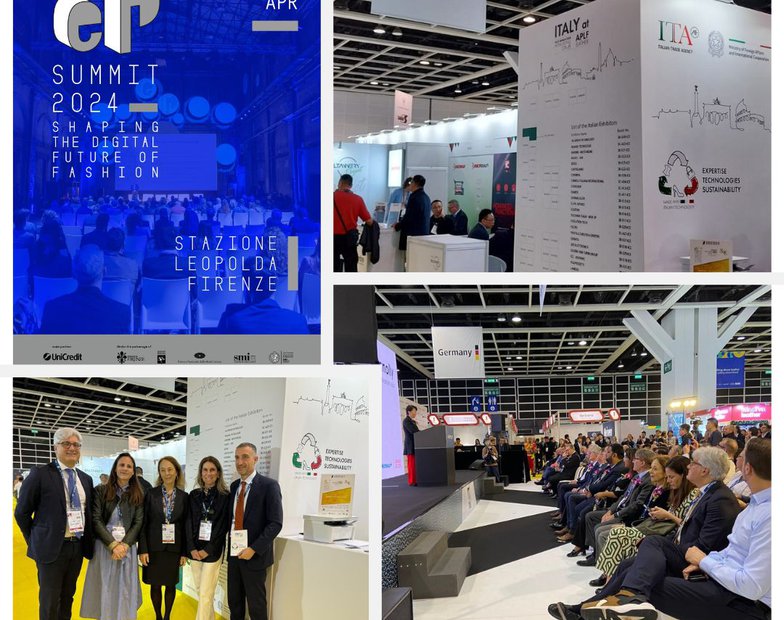2022 is proving to be another year of unprecedented challenges and opportunities for retailers and brands. Steve Lamar, CEO of AAFA, talks about inflation, supply chain, sustainability and metaverse with Footwear News (FN)."
Global supply chain obstacles, including port delays, price gouging, and a lack of access to equipment to move products at the port is creating newfound challenges for retailers and brands looking to move their products overseas to different markets. Record-high consumer prices due to inflation are also creating challenges for consumers.
According to Steve Lamar, the president and CEO of the American Apparel & Footwear Association (AAFA), the seeds for some of today’s issues, including high tariffs and inflation, were planted months — even years — prior. But there could be an end in sight.
FN: Consumer prices rose by 8.5% in March compared to a year ago, with footwear prices up 6.6% year over year. Is there an end in sight to these high prices?
Lamar: We want there to be an end in sight. It’s really an inflationary cycle. The president has talked about using all the tools in the toolbox, and we’ve been urging him to, in fact, do that. We’ve not seen him deploy, I think, one of the most obvious tools, which is to put some tariff relief into the equation. For example, the Section 301 tariffs that are imposed on U.S. imports of footwear from China and other products as well —apparel and other fashion accessories — can be eliminated with the stroke of a pen. And the president hasn’t done that yet. That would have immediate benefits for U.S. consumers because tariffs or taxes ultimately get passed on to U.S. consumers in the form of higher prices. We also believe the president can and should be doing more to attack some of the price gouging issues that we’re seeing in carrier logistics. That’s harder because that requires investigations and oversight. And some of that that may involve congressional action with the Ocean Shipping Reform Act.
FN: What are your concerns regarding contract negotiations at the West Coast ports, that are set to commence soon?
Lamar: The labor contracts that control all West Coast ports come up for renewal this summer. There’s going to be negotiations that start in early May to try and get these renewed. In normal years, those contract renewal discussions are very disruptive. They either lead to walk-offs the job, to strikes, to lockouts — we can see mischief on either side. And one of the things we’re urging the president to do is to really establish guardrails to make sure that these two parties come together and negotiate in good faith quickly and make sure that there’s zero disruption. Not even a hint of disruption. Because we can’t afford that.
FN: What is your view on the lockdowns across China and what are your biggest concerns as it relates to the industry?
Lamar: The Chinese are deploying a “zero-Covid” strategy, which is a strategy that doesn’t really recognize that the COVID that we’re facing now is not the same Covid that we faced two years ago. We have two-years worth of experience keeping facilities, factories, other businesses up and running in a healthy and safe manner with a combination of vaccines, testing, masking, distancing and the like. And those are policies that continue to be tweaked as more information is discovered and as the virus mutates. There’s really two crises that we’re dealing with. There’s the economic crisis and there’s the health crisis, and we have to manage each of them both together in turn.
The Chinese are deploying tools that they’ve deployed two years ago and are not effective in preventing the spread of the disease, but effective at injuring livelihoods in China and injuring supply chains around the world. And so we’ve been urging the Chinese government to modify their policies.
FN: What are the long-term impacts you expect to see from the supply chain crisis?
Lamar: There’s been this generational sourcing shift coming out of China, where for a while now, companies have been trying to diversify both finished product as well as materials. We see this really in all the product categories that we look at: footwear, apparel and accessories. Whether it’s the tariffs increases or China’s zero-Covid policy, more companies are locating production outside of China. But at the same time, China remains an important partner, both to sell into the Chinese market as well as for production. So it’s a balance.
Everybody wants to be as close to the consumer as possible. And if you can near-shore production, you have to look at what market you’re talking about and all of the components that go into that production. That said, it takes a long time to move supply chains.
FN: What do you see as the opportunities and challenges for footwear and apparel brands in the metaverse?
On one hand, it’s a relatively new concept. And the other hand it’s really well developed in the way that the companies have been approaching it now. I think we’re still in the process of trying to understand how this parallel economy contributes to a company’s market share revenue and intellectual property.
There are a lot of issues that are that are beginning to come up. And it may challenge the way you might have traditionally looked at something like intellectual property. I think it’s going to be a while before a lot of that stuff is really fully sorted out, but it’s definitely an area where we’re seeing a lot of interest.
FN: What is the best way for companies to frame their sustainability commitments?
Lamar: You want to be responsive to the consumer, to the government, to your own stakeholders, NGOs, and to your own workers. There are a lot of people inside companies that are really demanding that companies do more. But at the same time, you want to make sure that what you’re doing is actually achievable. You want to say ‘We’re committed to do this and we have a plan to actually get there.’ Nobody wants to promise and then not do anything. Sometimes companies will be relatively slow to announce what they’re doing because they’re really trying to work it out. They want to be able to stand by those commitments. I know everyone’s really focused on trying to make sure the industry is as sustainably-focused as possible, whether it’s circularity, reducing the carbon footprint, or using materials that are recycled. But all of this boils down to reducing any negative impact associated with the industry and increasing positive impacts that the industry has for consumers.



